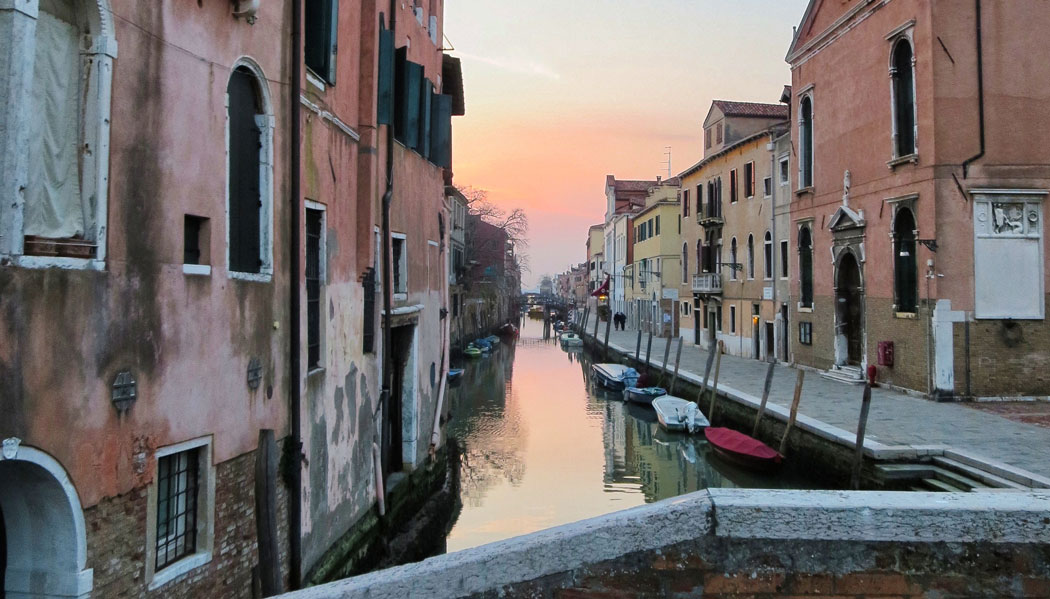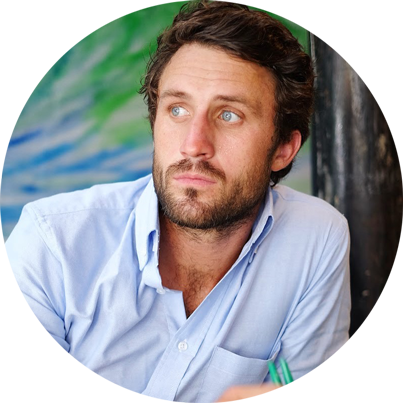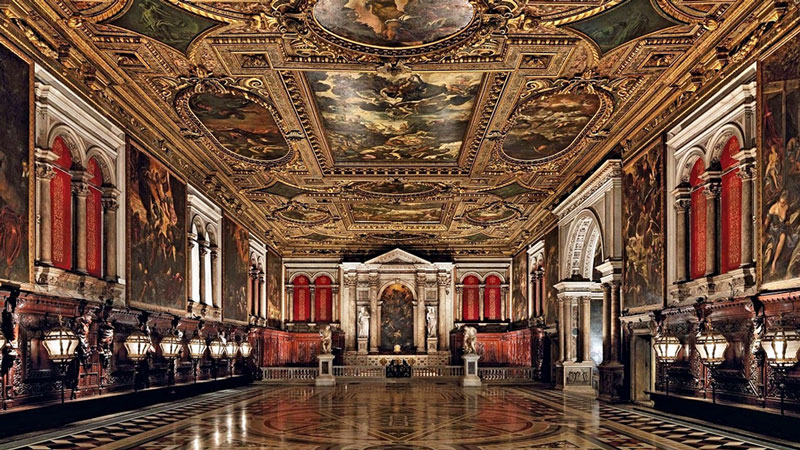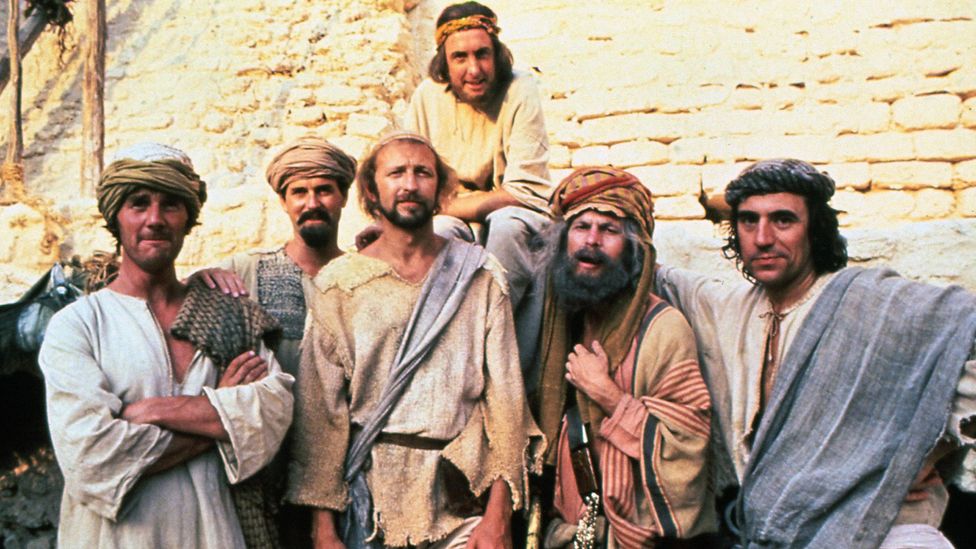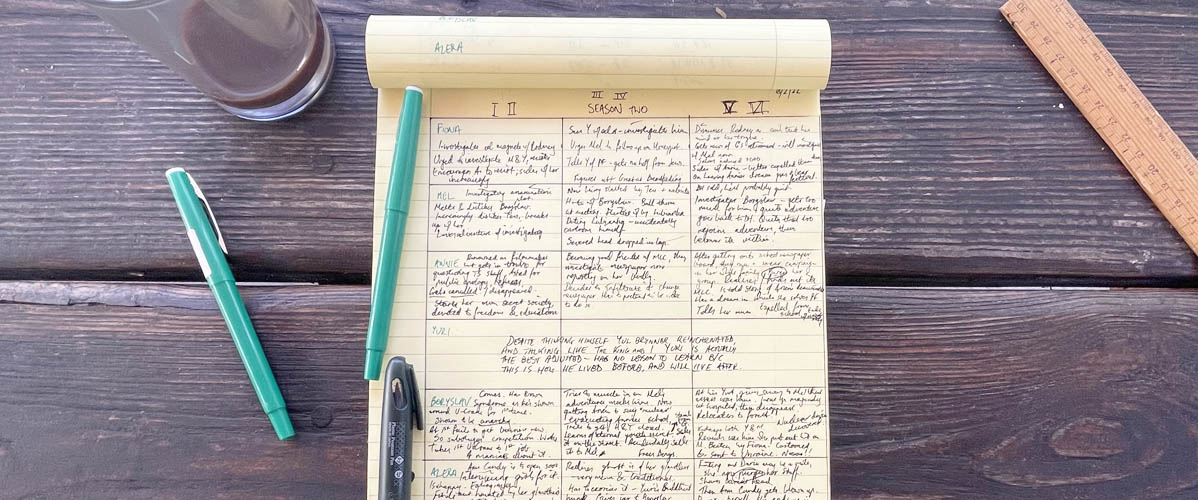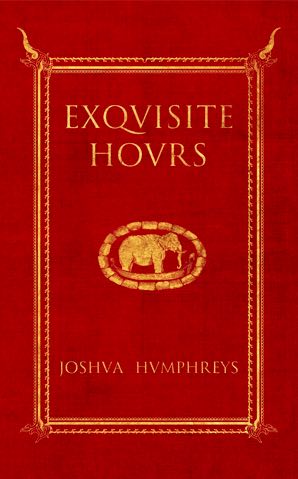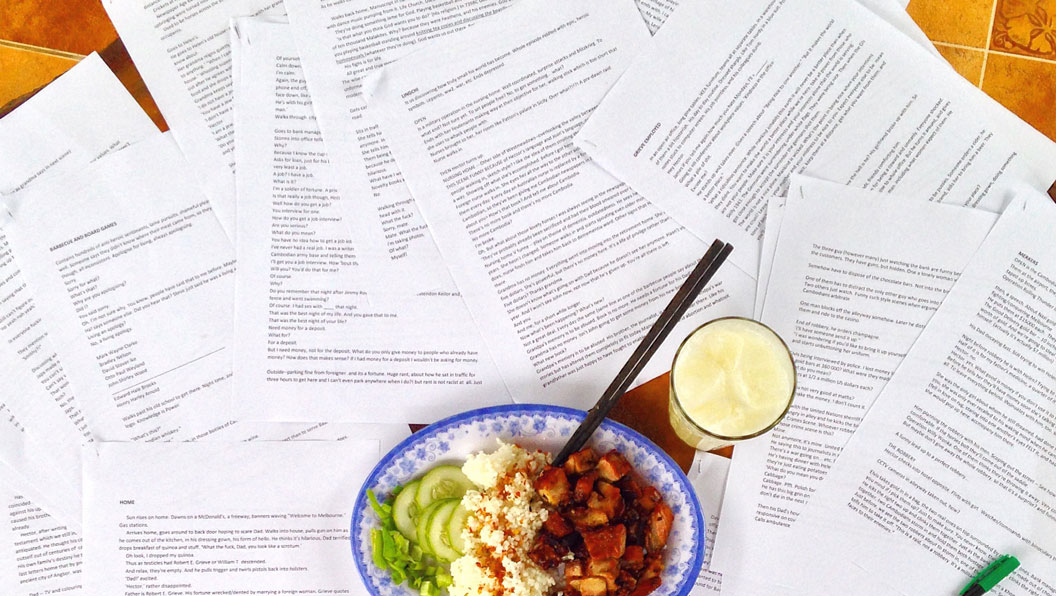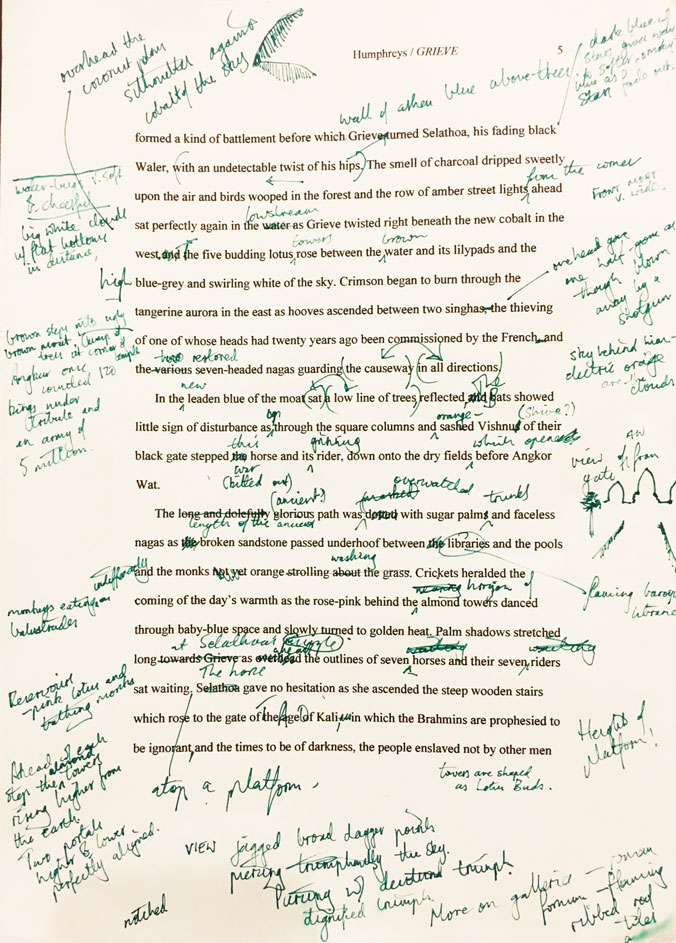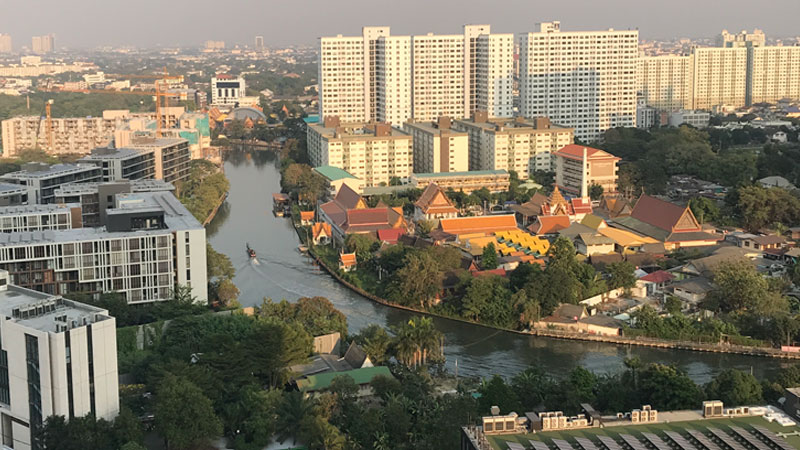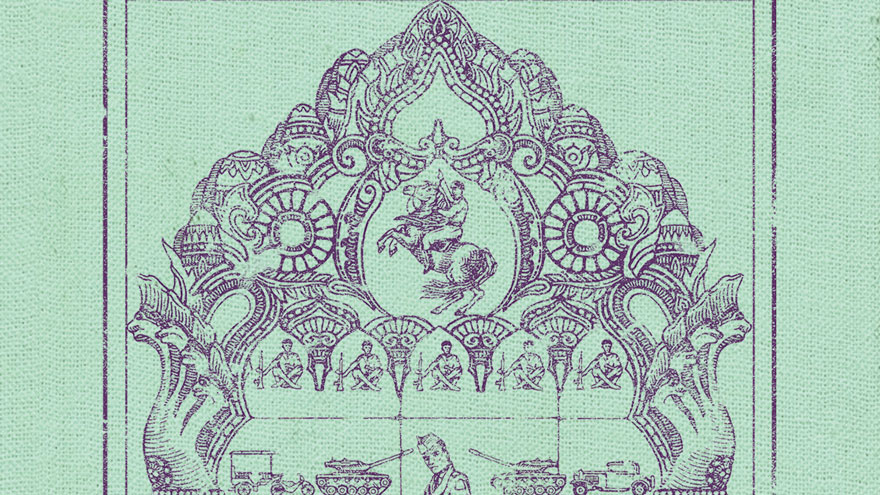Something beyond attainment.
Dramatic perhaps, but only after writing the first comedy novel did I realise the uniqueness of what might be written. I had had my Venetian lightning bolt; I shortly would carve out a novel even more intensely itself, and begin a quest still incomplete: to write the funniest novel ever written.
In Harry’s Bar, having grossly underestimated the price of a bellini—when the bill arrived to frighten me I looked around the room and thought, “If I really wanted to, could I get someone else to pay it for me?”
My instinct was to look to the women and, being naturally a storyteller, I knew any attempt would involve an elaborate and amusing story. In an actionless instant a character was born almost perfectly suited to a comedy novel: a young man who travels the world lying to women.
Something beyond attainment.
Dramatic perhaps, but only after writing the first comedy novel did I realise the uniqueness of what might be written. I had had my Venetian lightning bolt; I shortly would carve out a novel even more intensely itself, and begin a quest still incomplete: to write the funniest novel ever written.
In Harry’s Bar, having grossly underestimated the price of a bellini—when the bill arrived to frighten me I looked around the room and thought, “If I really wanted to, could I get someone else to pay it for me?”
My instinct was to look to the women and, being naturally a storyteller, I knew any attempt would involve an elaborate and amusing story. In an actionless instant a character was born almost perfectly suited to a comedy novel: a young man who travels the world lying to women.
A comedy novel conceived in Venice—and at Hemingway's favourite bar.
Where would the young man go? Why was he travelling? Why did he lie? After years of my own wandering I knew that he would, as all of us are, be searching the wide world for a home. But not just any home—my character’s search would be for paradise. Currently my own was in Southeast Asia. What was the Eastern equivalent of our Eden? Shangri-La, which sounded to me like the name of a hotel. And so it was, in Bangkok.
Severely nostasialgic, I would fly to Thailand to research this novel about a lying lothario before going to Hanoi to buy a motorbike. With only my savings I was again to move to Vietnam to write a book. On the flight from London to Bangkok, typing so furiously that the woman in front of me kept turning around to ask that I stop kicking her seat, I realised that no decent person would enjoy a novel about a young man lying to women—and no sane person would write one. Several drinks into the flight I was given another, much warmer, lightning bolt:
They would read a novel about a beautiful young woman, who travels the world lying to men.
So was reborn in a winged flash my main character. I saw her completely—aloof, sighing across the globe in her search for a home, lying to men as one after another they confessed unwelcome love for her.
Somewhere from Swift I knew a rare quote pertaining to lying:
"As universal practice as lying is, and as easy a one as it seems, I do not remember to have heard three good lies in all my conversation, even from those who were most celebrated in that faculty."
"As universal practice as lying is, and as easy a one as it seems, I do not remember to have heard three good lies in all my conversation, even from those who were most celebrated in that faculty."
My beautiful young woman would not just be any liar, she would be truly great at it, celebrated—telling fibs so big, so fanciful, so elaborate that she would rank beside Costanza and prove Swift finally wrong: lies that were their own justification because they were so much fun to tell—and even more fun to read.
I had only to choose where she travelled to and where she ended up. Most people for some reason wish to live in New York: her story would begin in media res on her way to Manhattan. Stateside, Mormons think Jackson County, Missouri is the location of paradise—another candidate for a chapter. Naturally she would travel to Eden’s antithesis, for which Bangladesh could stand. Venice, where her story had been conceived, was then the chief sanctuary of my own heart. There I would have my main character long to be, there she would meet her false-speaking match, there she would fall in love.
The central section of the book would be set in Venice.
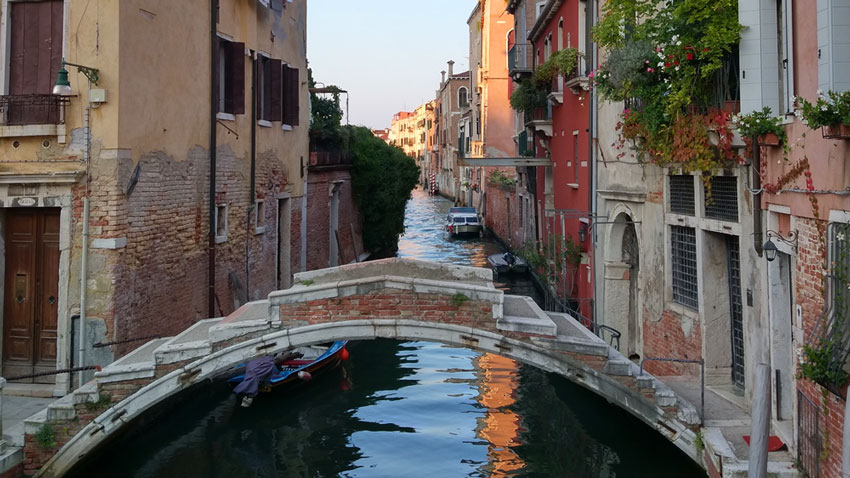
The bridge in Venice where my main character would later sit in silence and ask, 'Do you ever think that the music we listen to is the soundtrack to our lives?'
"First, then, that happy shore, that seems so nigh,
Will far from your deluded wishes fly;
Long tracts of seas divide your hopes from Italy…"
DRYDEN'S Aeneid
"First, then, that happy shore, that seems so nigh,
Will far from your deluded wishes fly;
Long tracts of seas divide your hopes from Italy…"
DRYDEN'S Aeneid
Landed, in Bangkok I walked into the lobby of the Shangri-La Hotel and was amazed. I told the front desk I wanted to set part of a novel here and they gave me a guided tour. Hearing the naga fountains, watching the River of Kings, touching their Khmer lintels on display—after another week in Bangkok I was hooked on the art, the temples, the colour, the energy.
Then to Hanoi. I found a decent motorbike and in three weeks rode it a thousand kilometres, into the mountains then down to Hoi An. En route I discovered a new and strange delight. The Vietnamese province of Nam Dinh was the first to be Christianised and its paddies and riverscapes are dotted and stuck with churches modelled on the baroque cathedrals of Spain and France. Rice farmers labour before slender steeples, fishermen row in the shadows of bell-towers, fish-sauce makers stir squid in tubs beside bombed-out naves. I have never seen anywhere like it, and I return, flabbergasted, as often as I can.
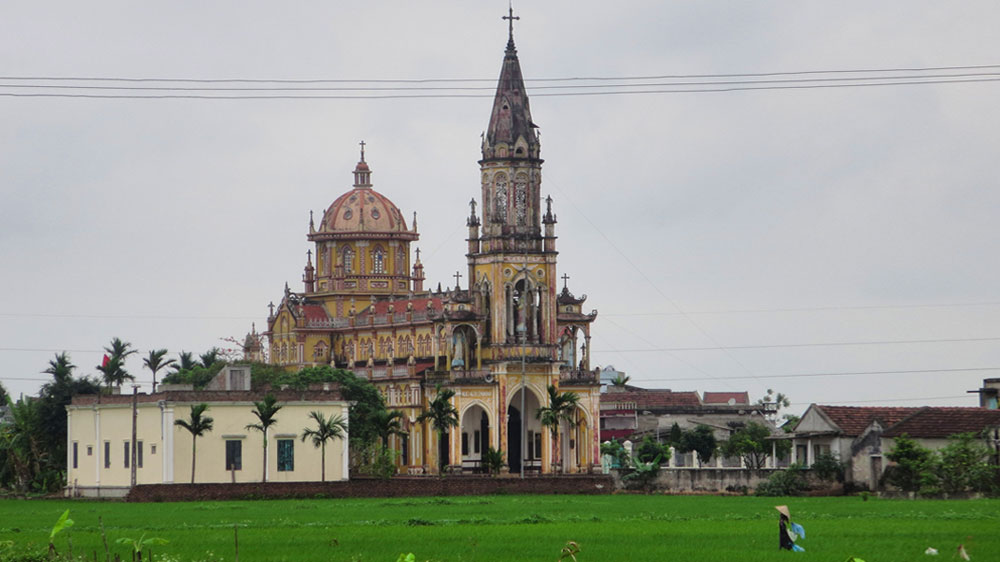
The beautifully strange church-and-paddy landscape of Nam Dinh, Vietnam.
While riding south I searched for my main character’s literary precedents. Quite accidentally I found the grand-daddy of narratives involving exiles seeking a home. Written a while before my own lifetime, as I rode to Mai Chau and Ninh Binh I read Dryden’s translation of The Aeneid, story of Aeneas—serendipitously named.
As Virgil’s protagonist sailed from Troy to Sicily to Carthage, mine flew from New York to Bangladesh to Bangkok. As Aeneas reached Rome so would my Anaïs at last make it to Venice. I had her name. Returned to Hoi An, I had only to write her story.
"Any audience, as a rule, goes for a fast number."
ELVIS
INTERVIEWER: If you were asked to give advice to somebody who wanted to write humorous fiction, what would you tell him?
WODEHOUSE: I’d give him practical advice, and that is always get to the dialogue as soon as possible. I always feel the thing to go for is speed.
"Write down those apparently exceptional & unimportant things and that and nothing else is your style."
FITZGERALD
"I rather feel that the less writers are always examining themselves in that sort of way, the better. I don’t think you ought to be thinking, Well, am I writing like this? Or writing like that? I think you just want to try to write as well as you can. It’s above all a question of instinct."
POWELL
"Any audience, as a rule, goes for a fast number."
ELVIS
INTERVIEWER: If you were asked to give advice to somebody who wanted to write humorous fiction, what would you tell him?
WODEHOUSE: I’d give him practical advice, and that is always get to the dialogue as soon as possible. I always feel the thing to go for is speed.
"Write down those apparently exceptional & unimportant things and that and nothing else is your style."
FITZGERALD
"I rather feel that the less writers are always examining themselves in that sort of way, the better. I don’t think you ought to be thinking, Well, am I writing like this? Or writing like that? I think you just want to try to write as well as you can. It’s above all a question of instinct."
POWELL
I settled immediately into my writing routine. Rising with the sun; a pre-work stroll around my Vietnamese fishing village; weaving the making of coffee into my morning and smoking happily my pipe—as I each day began with pen and paper before switching to my laptop once the words flowed—until soon after midday the 3000 words were done.
I gave Anaïs the kind of now-extinct spunk that drove Billy Wilder’s dialogue. I laced the plot with Eastbound-ish jokes and inserted Danny McBride as a character. I read and reread Evelyn Waugh. I rewatched obsessively The Hangover 2 as I put Anaïs through the Bangkok ringer. And, realising more and more what the book might become—remembering that comedy films are 90-minutes long—as I wrote her story I really went after speed.
"What, it's a bag of Fanta?!" Scientifically two of the funniest movies ever made, I learnt and took much from the pace and compactness of The Hangovers.
Through Waxed Exceeding Mighty I had ‘Light & Excellent’ over my desk. I now added ‘Swift & Exact’ to my creed: nothing superfluous, just the story of Anaïs' search for a home—no second-guessing my style or descriptive accuracy, whatever I thought, onto paper—those apparently exceptional & unimportant things—and I could take them out later if they didn't follow Vonnegut’s Rule.
In 100 pages Anaïs went from Hong Kong to New York to Missouri to Bangladesh to Bangkok. She had 5 men confess their undying love, rufied two of them, and had been chased, felt up, kidnapped. Delightedly she arrived in Venice and the city, the world’s most beautiful, I in no small task had to write from memory. When selecting the smaller backdrops for the shimmering calm of her Venetian love affair, the most redolent passage I knew on Venice described the precise location in which I wanted Anaïs' first show of genuine emotion to take place.
It's Henry James, talking of time spent in the Scuola di San Rocco:
"In the memory of vanished hours so filled with beauty the consciousness of present loss oppresses. Exquisite hours, enveloped in light and silence, to have known them once is to have always a terrible standard of enjoyment."
"In the memory of vanished hours so filled with beauty the consciousness of present loss oppresses. Exquisite hours, enveloped in light and silence, to have known them once is to have always a terrible standard of enjoyment."
The book's title chosen and the Venice section written, I knew I would have to return to Italy to ensure that the book did the city justice.
The book's title chosen and the Venice section written, I knew I would have to return to Italy to ensure that the book did the city justice.
The Scuola di San Rocco, where Anaïs would be humanised, and shed her first tear in years—and from a description of which the book's title was taken.
The Scuola di San Rocco, where Anaïs would be humanised, and shed her first tear in years—and from a description of which the book's title was taken.
Anaïs had met her false-speaking match, she had fallen in love, and her magnificent lies had begun to catch up with her. Now she and her love interest would, according to the fate of their story, attempt to found a home together in—
I had no idea. I'd only thought as far ahead as Venice. But as my main characters floated in stolen boats down hidden canals I (and they) knew they could not live there. Where should the last third of the story take place? Before leaving London I had met a girl and, knowing that I was going to Vietnam to write this book I could but say to her that if she visited me there, and it went well, I would visit her in turn. So it was back to Europe for me.
With 3/4 of the novel finished I went again to Venice and spent a month rewriting its central chapters. I returned to London and had my old job pay my rent—and had Anaïs and Octavian attempt too a new life in Battersea.
"Life imitates Art far more than Art imitates Life. … Life holds the mirror up to Art, and either reproduces some strange type imagined by painter or sculptor, or realises in fact what has been dreamed in fiction."
WILDE
"Life imitates Art far more than Art imitates Life. … Life holds the mirror up to Art, and either reproduces some strange type imagined by painter or sculptor, or realises in fact what has been dreamed in fiction."
WILDE
As summer quickly dove away and the end of the year and my birthday approached I vowed not to be working in a pub beyond 30. This book was, after all, a damn sight above my previous effort. Absolutely it would be able to support me.
The nostasialgia was gnawing at me again, though this time not for Vietnam, but for Bangkok—the city in which I had spent only a few research-filled days, and soon the nostasialgia ruined my relationship with the girl for whom I had come to London. In my spare time I was reading histories of Thailand, daydreaming of heat and jungle and motorbikes, and could find no enjoyment in the domestication which Boris Bikes and Battersea brunches really are.
Strangely it was the same ordeal through which I was putting Anaïs. Life was imitating art was imitating life. Anaïs too, after years of adventuring, had had to resign herself to gardening and baking—even to jogging—and I had modelled their flat on the one I now moved hastily out of. I returned to Bangkok and as I rewrote the manuscript really dove into the place: histories of Thai kings, hours searching for obscure temples, days walking through its old town, dusks discovering its khlongs and still-jungled remnants.
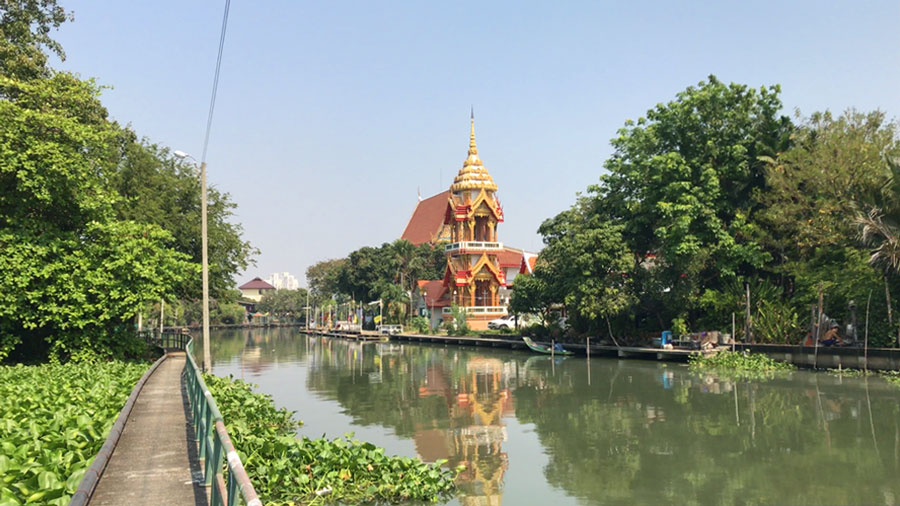
Phra Khanong canal. Quintessential Bangkok, and later Godfrey Lackland's running track.
In my building’s pool I wrote an essay, my first, on the concept of “The Comedy Novel”. Combining the elegant literary novel with the films and sitcoms that we can all quote by heart, the comedy novel was both literature for those who didn't read and comedy for those too uptight to laugh.
In writing the essay I was fine-tuning the concept of the comedy novel as I wrote one. Daily I would pace up and down the pool and elucidate its definition, clarify what such a thing ought to be—quickly dry myself off and return to the manuscript to cross out what was insufficiently amusing, intensify its comedic elements—'up the funny' to as close as possible to a laugh a page.
By September the manuscript was finished and I again submitted it to UK literary agents. Though they had ignored Waxed Exceeding Mighty they could not possibly look past this one. Surely the tagline would sell itself: “A beautiful young woman who travels the world lying to men.” The opening was almost the funniest part of the book. They would be drawn in, hooked, and see that a new thing had been born!
For my 30th birthday I flew back to Italy, to Venice and Rome, and while strolling along the Riva degli Schiavoni I got an email from a literary agent. He loved the book and wanted to take it, and me, on. They were human beings after all, and actually received what was submitted to them! Selah-in-the-fucking-valley! He gave me a three-year timeline for the book’s appearance on store shelves. I remember it vividly: I leaned against the outside wall of the hotel in which Anaïs stays in Venice and my heart sunk. I was out of money. I would return to Bangkok destitute. I wanted to live off my writing and defined the profession as such. In the three years it would take to get properly paid for my work I would do what? Again it seemed that it was money that made writers and not the other way around.
I had vowed on leaving London that I would not bartend past 30. On the night of that birthday I swore to the Trastevere fountain in which I had once frolicked that I would henceforth live only off being a writer. I had sworn all over the place, and now, seemingly, I had oathed myself into a corner.
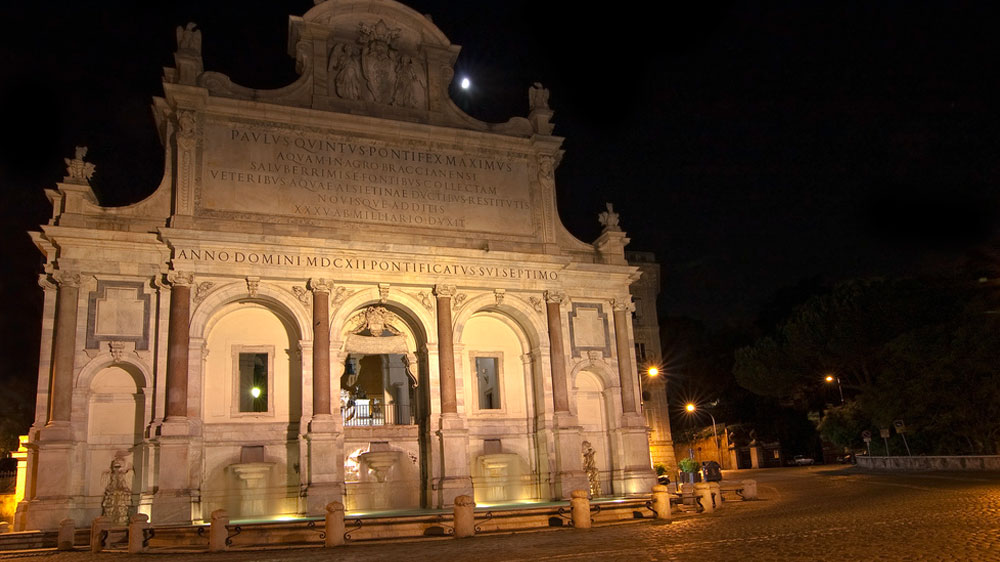
One of several Italian fountains in which I had frolicked over the years, and that beside which I swore that after 30 I would live only off the proceeds of my brain.
I saw rising before me a Roman discrimen, a Greek kairos—those critical and opportune moments when the achievements of a lifetime hang in the balance.
"quin agite et mecum infaustas exurite puppis.
Come then, and join me in burning these accursed boats!"
VIRGIL
"quin agite et mecum infaustas exurite puppis.
Come then, and join me in burning these accursed boats!'"
VIRGIL
I had two choices. I could play their game, quietly, and accept three years as the interval before which I would be properly paid for my work. In the meantime I could what—frig myself? Maybe I could work as a florist—flourish gaily as a truck driver. Then when my time came and the gatekeepers told me they were ready for me now, I could take the place allotted to me on their bookshelves.
Or, I could tell the agent to make sex to himself and do it all on my own.
I had two thousand Australian dollars to my name and a new and hilarious novel in my pocket. I also had years of reading behind me that all pointed to one worthy course of action.
“If you will it it is no dream," said Theodore Herzl. “Be rough, unswayable, and free," said someone in Shakespeare. “A life not willing to sacrifice itself to what makes it meaningful is not worth living," said Jan Patočka. "He either fears his fate too much who dares not put it to the touch, to win or lose it all," lived Montrose.
"IF!" wrote General Patton, whom I was reading as research for the next novel, "every leader who went into battle promised himself he would come out either a conqueror or a corpse, he is sure to win."
So I swore a third time, on a bottle of Sangsom: I would come out of comedy-novel-writing a conqueror or a corpse. I burned the boat and told the agent to make sex to himself. No thing but a readership would support me now.
My two thousand dollars would buy 200 copies of this new novel. If I could somehow release the book myself, and sell those 200 copies, I just might not come out of this a corpse. I emailed my mother and asked if she would by any chance like to fly me home for Christmas—and could I stay for a few months while I figure out my next move? I commissioned a cover from Sam, combining Thai and Venetian art. It shows the elephant from the old Thai flag standing in a gondola, bordered by Lai Thai and kranok. I ordered a proofing copy to Melbourne and returned home for Christmas.
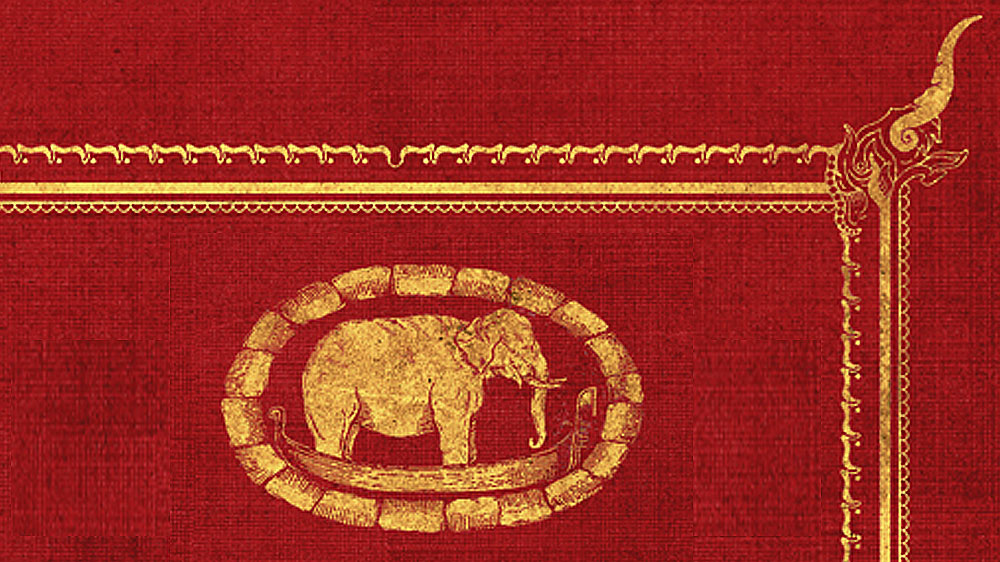
A Thai elephant in a gondola, surrounded by the corbelling of a patera—decorative elements from the book's cover art by Samuel Humphreys.
I spent two weeks rewriting that copy for speed then ordered another. I rewrote that from feeling, and when the next copy arrived, and came out of another rewrite with minimal green-pen scars, the book was ready to be loosed upon the world.
The 4 proofing copies had cost 8% of my net worth. I had $1840 to my name: 184 copies could be ordered. One hundred and eighty-four copies of Exquisite Hours needed to be sold in order to save me from becoming a corpse.
My travels having amassed a larger social media following, I publicised this rewriting process, kept secret its cover, and compiled into a soundtrack the music already woven into the book’s narrative. For two months tiring myself with the work of preparing a novel for publication, I at last revealed the cover and posted that the book was available for ordering and went, exhausted, to bed.
That night I dreamt that Ernest Hemingway and Michael Jordan both told me that if I—no, I’m kidding. There’s little romanticisation about what I do. But I did wake up to find the 184 copies—those books that had literally bankrupted me—had sold. A readership had saved me. I had gotten the entirety of my investment back, the gamble had paid off, I would not have to return to floral truck-frigging.
PayPal withdrawals then took 3 days to transfer, so I had to borrow the money for brown wrapping paper and twine—from the very girl I once knew whose biography informed elements of Anaïs' own. I spent a delirious weekend inscribing and signing and wrapping 184 books and on Monday we strutted triumphantly into the post office.
The last track on the book’s 19-song soundtrack is I Can Hear Music by The Beach Boys. Made-up Michael Jordan dreams aside, when my friend and I placed the several boxes of signed books on the post-office counter the song playing from the overhead speakers ended and on came I Can Hear Music. In the very act of sending out copies of a novel containing the line, “In an ordered universe there are no coincidences," she and I looked at one another both riddled with goosebumps.
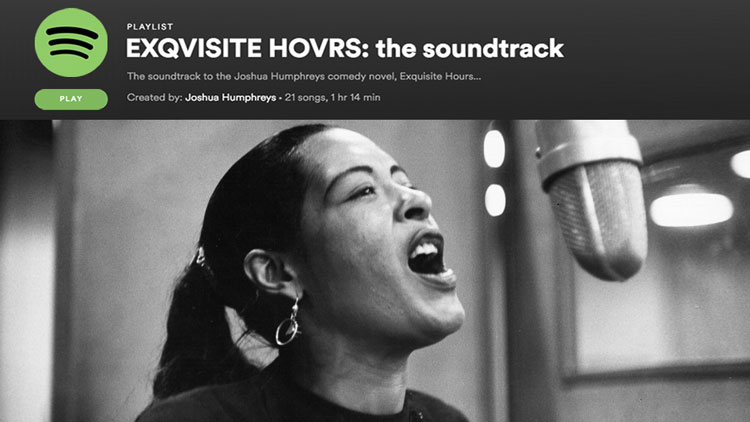
Bob Dylan, Nina Simone, Louis Armstrong, The Rolling Stones, The Beach Boys, and Billie Holiday—soundtrack to a comedy novel.
"To me, the most valuable capital a writer has is time. Time to write, time to learn his craft, time to get better. Money exists to protect that time. … Money exists, in my world, to buy me another season."
PRESSFIELD
"To me, the most valuable capital a writer has is time. Time to write, time to learn his craft, time to get better. Money exists to protect that time. … Money exists, in my world, to buy me another season."
PRESSFIELD
As I publicised the signing process more people had placed orders for the novel than there were copies of it. At first I thought to refund their money and apologise—it was, literally, unfortunately, an edition of only 184. But then I realised that I could put the book on back-order, and sell more?
I had saved myself from prostitution—wait. No, I had gone all in and saved myself from destitution—why not go all out and sell enough copies of this book to enable me to write the next one?
Shortly there came direct feedback. Slightly nervous that I was overestimating myself, reviews started appearing—reviews that were good. What a feeling that was. Starting out as a stand-up, one has laughter as an instant feedback mechanism: you know if what you say is funny and instantly if you're any good. It was the only thing I missed in comedy that writing could not provide.
Just as even Anaïs had eventually cried, so could I now have done. I was making money as a writer and readers liked my work. Who needed literary supplements in tabloid papers to tell one that one could write? I had readers, genuine and avid readers, reading my work—and laughing. The comedy novel had been born, and it had come into the world spitting out its tea from laughter. That new aim took root: to spread word of this novel’s hilarity and gain for myself the only thing I truly wanted—another season.
So I dressed up as a mermaid.

Tying an incident in the book's story into its promotion, I dressed up as a mermaid (and Braveheart & Tobias Fünke) and Exquisite Hours launched my career.
Why a mermaid? I thought perhaps the best way to promote the book might be to read from it, and Anaïs at one stage lies about having worked as a mermaid. Logically, if I was going to read from that section, I should be dressed as a mermaid. Right?
Right.
I started posting the book's reviews, would refuse to sleep until 10 more copies had been ordered—literally I sang for my dinner—and after clogging my parents’ kitchen table for 2 months with red books I had done it.
I had gotten myself another season.
I professed then, and still profess now, the desire for no wealth but the freedom to entertain. Now that I had it—enough money to write another novel, freedom to entertain the very readers who made possible that freedom—I would not suffer from Fitzgerald’s regret:
''What little I’ve accomplished has been by the most laborious and uphill work, and I wish now I’d never relaxed or looked back—but said at the end of The Great Gatsby: ‘I’ve found my line—from now on this comes first. This is my immediate duty—without this I am nothing."
''What little I’ve accomplished has been by the most laborious and uphill work, and I wish now I’d never relaxed or looked back—but said at the end of The Great Gatsby: ‘I’ve found my line—from now on this comes first. This is my immediate duty—without this I am nothing."
Exquisite Hours was as close to a Comedy Novel as I could then get. Consummately it was The Hangover meets Evelyn Waugh, Ernest Hemingway gives Will Ferrell a piggy-back ride—P.G. Wodehouse cross-dressing with Monty Python.
I had tried for something beyond attainment and the book's readers had pronounced it as close to my aim as possible. And to many it was, outright, the funniest book they had ever read. I had found my line. The comedy novel was my immediate duty—I would not relax nor ever look back. And, having written a book that everyone wanted to read, I could now write the book that I wanted to read.
